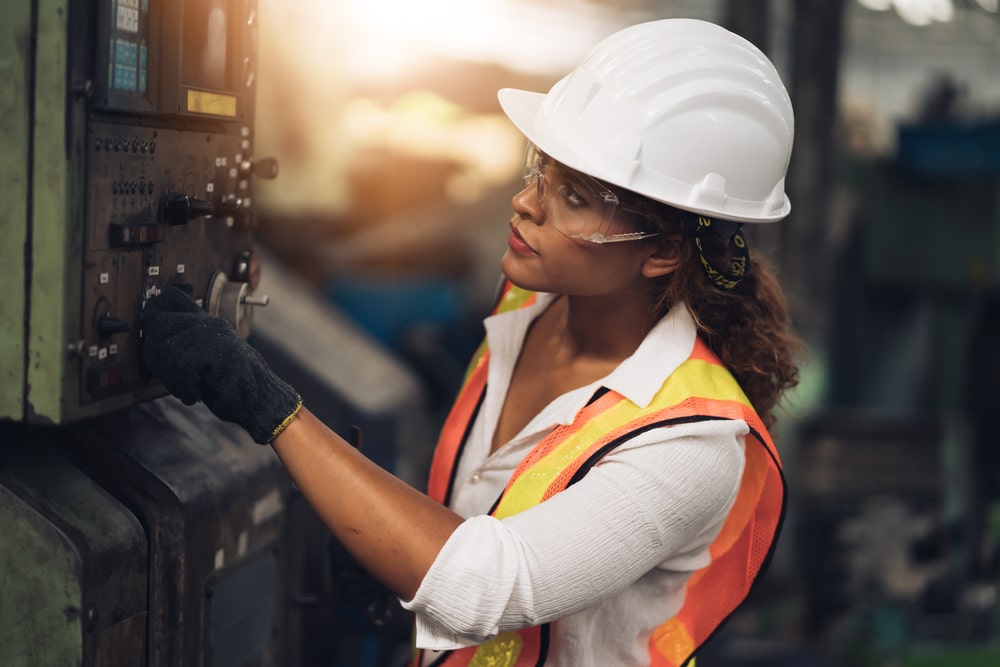Sector - Consultancy
How Can Construction Tackle its Gender Divide

With Women in Construction Week from March 7th-13th, the spotlight is on the industry to showcase how it is empowering gender equality, and banishing its reputation as a “boys club”. Andrea Brown, Procore’s Channel Manager for the UK and Ireland, shares her experiences of working in the male-dominated sector, explains the vital need for female talent, and suggests steps firms should take to boost gender representation and equality.
Just 12.5% of construction employees in the UK are women, and only 5.4% are BAME[1], making it arguably one of the most unequal divides of any sector in the country. Not only are thousands of women and minorities missing out on fulfilling careers, but the industry is cutting itself off from access to a vast pool of talent and expertise. As the construction industry’s output, which has fallen in the latest lockdown[2], begins to bounce-back, empowering women in the industry, and attracting new talent, will play an essential part in the sector’s future growth.
This isn’t just about putting more boots on the ground at construction sites, but opening women up to the vast opportunities construction offers on the whole. Whether it’s as a tiler, an architect, a surveyor, a CEO, or a sales person, we need to ignite greater enthusiasm for bringing women into construction.
Construction is one of the fastest moving, innovative, and rewarding sectors to work in, so how can we address this blindspot when it comes to women and BAME people, and build a stronger industry for all moving forwards?
Recognising the hill we have to climb
My career in construction started from scratch and without a clear roadmap.
I had a home office, and a young family. Creating a job that would enable me to balance work and life was my number one goal. This led me to construction—not as a planned career, but a stop gap—a way to be my own boss and work around my other commitments. It quickly became both the hardest and most rewarding thing I would do to date.
At its height, that home office business grew to 250 subcontractors, before we eventually sold the operation as a franchise. I remember so many highs and lows from that time; the jobs that went perfectly, and the time the £150 per roll designer wallpaper was applied upside down. I also worked with some brilliant and talented individuals, and remember the moments that workers just didn’t show up, despite our promise of “on time, everytime”.
What I don’t remember from that time is meeting other women, and certainly no black women, working in the sector. At the time, I even saw animosity toward people like our Polish sub contractors. If the industry wasn’t even open to white men from Europe, I felt that the broader construction industry was simply closed off to women like me.
Because there was no evidence to me that it was an open and equal industry, for a long time I didn’t even discuss my experiences of construction in job interviews. I left it off my resume, or just casually made reference to it, despite my experience and success having equipped me with skills for life.
Plugging the gap
While construction is still a male dominated industry, progress is being made. It’s increasingly common to find women working in all fields of construction today, compared to twenty years ago. And, while women may make up just 12.5% of the overall workers in construction, the balance is shifting, with 37% of those joining the sector from higher education being women.[3]
This change couldn’t come soon enough.
The Royal Institute of Chartered Surveyors (RICS) highlighted before the pandemic that the shortfall in the number of skilled construction workers in the UK was at its highest point since 2007, with 200,000 workers needing to be recruited.[4] Furthermore, one in five construction employees are aged over 55. That means as the post-pandemic recovery gets underway, and the government aims to build 300,000 new homes a year, a huge swathe of the industry will be hitting retirement.
We need to get new talent in, and fast.
Women have to be at the heart of this push for new skills and expertise. This is key to both achieving the industry’s growth ambitions, and creating a more innovative sector as a whole. A more diverse set of voices, experiences, perspectives, and skills naturally leads to a more creative, fast-moving and innovative industry.
How we get there
Individuals, teams, and organisations can take several actions to help construction become a more inclusive industry.
- Confront damaging and outdated attitudes: Clipboards, pens, and paper are becoming a thing of the past. Today’s construction leaders are embracing real-time data insights to manage and track projects across sites. So, it’s also time attitudes caught up with the tech. Everyone has a role to play in calling out discrimination in the workplace, and with 41% of women in construction facing inappropriate comments at work, leadership must take a firm stance.[5] Excuses on the grounds of “only joking” don’t cut it. Those comments add up to real harm to both individual women, as well as the industry’s reputation, and its ability to attract the talent it needs.
- Cut the pay gap: To bring more women into the industry, organisations need to put their money where their mouth is. While the gender pay gap in construction has fallen, it still stands at 20%.[6] Considering the complex perception challenges around bringing more women into construction, equal pay should be a straight-forward priority.
- Champion inspiring women: If we want to encourage more women, particularly from a BAME perspective, into the sector, we need to keep championing those of us already here. From holding open webinars to share experiences, to outreach activities at universities or industry events, promoting women’s voices has to be a priority. Having access and exposure to senior role models and mentors is particularly vital for younger women finding their feet in the sector.
Construction is an invigorating sector to work in. With vast projects, from green industry to housebuilding on the horizon in the UK, it will be at the heart of the post-pandemic economy. The industry’s challenges won’t be fixed overnight, and women both in the sector today and joining tomorrow will have to be resilient. But if construction is to unlock its potential, and continue its transformation, women must be at the heart of it, and I’m super proud to have found myself at Procore doing just that, and with support around me.
By challenging outdated attitudes, driving greater representation and equal pay, and empowering women to forge their own paths in this exciting sector, the industry will be set to thrive for years to come.
If you would like to read more stories like this, then please click here
[1] https://www.gmb.org.uk/news/construction-industry-just-125-women-and-54-bame
[2] https://www.ons.gov.uk/businessindustryandtrade/constructionindustry/bulletins/constructionoutputingreatbritain/december2020
[3] https://www.goconstruct.org/why-choose-construction/diversity-in-construction/women-in-construction/
[4] https://www.khl.com/news/Tackling-the-UK-construction-skills-shortage/1142170.article#:~:text=The%20Royal%20Institute%20of%20Chartered,to%20be%20recruited%20by%202020.
[5] https://www.randstad.co.uk/women-construction-2020/
[6] https://www.building.co.uk/news/gender-pay-gap-is-still-20-across-construction-says-rics/5098279.article
Related Articles
More Consultancy Features
- Outlook for the property and construction sector heading into 2025
17 Dec 24
Across the residential, rental and infrastructure sectors, there will be many challenges in 2025, as well as many opportunities.
- No compare – why framework comparison is a risky business
23 Jan 23
At a time when the framework market is more competitive than ever, it can be tempting for public sector organisations to choose the lowest cost.
- Physics engineering to go mainstream in 2022
8 Feb 22
Building physics engineers will become mainstream during 2022.






